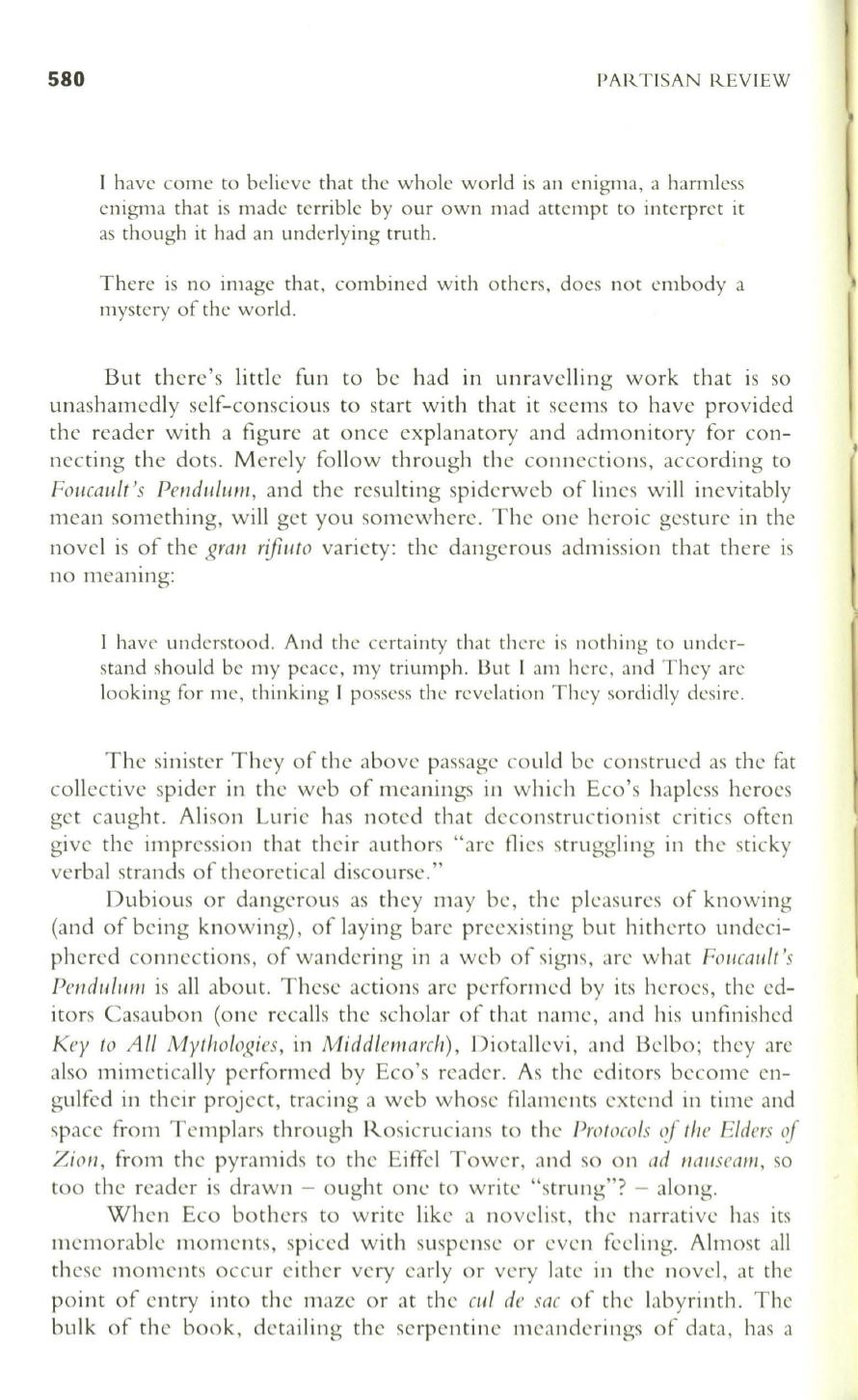
580
PAI<"TISAN
I~EVIEW
I have come to believe that the whole world is an enigma, a harmless
enigma that is made terrible by our own I11ad attempt to interpret it
as though it had an underlying truth.
There is no iI11age that, combined with others, docs not eI11body a
mystery of the world.
But there's little fun to be had in unravelling work that is so
unashamedly self-conscious to start with that it seems to have provided
the reader with a figure at once explanatory and admonitory for con–
necting the dots. Merely follow through the connections, according to
Foucault's Pendulum,
and the resulting spiderweb of lines will inevitably
mean something, will get you somewhere. The one heroic gesture in the
novel is of the
gran rifiuto
variety: the dangerous admission that there is
no meanll1g:
I have understood. And the certainty that there is nothing to under–
stand should be my peace, my triumph. But I am here , and They arc
looking for me, thinking I possess the revelation They sordidly desire.
The sinister They of the above passage could be construed as the fat
collective spider in the web of meanings in which Eco's hapless heroes
get caught. Alison Lurie has noted that deconstructionist critics often
give the impression that their authors "are flies struggling in the sticky
verbal strands of theoretical discourse."
Dubious or dangerous as they may be, the pleasures of knowing
(and of being knowing), of laying bare preexisting but hitherto undeci–
phered connections, of wandering in a web of signs, are what
Foucault's
Pendulum
is all about. These actions are performed by its heroes , the ed–
itors Casaubon (one recalls the scholar of that name, and his unfinished
Key to All Mythologies,
in
Middlemarch),
Diotallevi, and Belbo; they are
also mimetically performed by Eco's reader. As the editors become en–
gulfed in their project, tracing a web whose filaments extend in time and
space from Templars through Rosicrucians to the
Protocols
of
tlte Elders
oj
Zion,
from the pyramids to the EitTel Tower, and so on
ad nauseam,
so
too the reader is drawn - ought one to write "strung"? - along.
When Eco bothers to write like a noveli st, the narrative has its
memorable moments , spiced with suspense or even feeling. Almost all
these moments occur either very early or very late in the novel, at the
point of entry into the maze or at the
wi
de sac
of the labyrinth. The
bulk of the book, detailing the serpentine meanderings of data, has a


